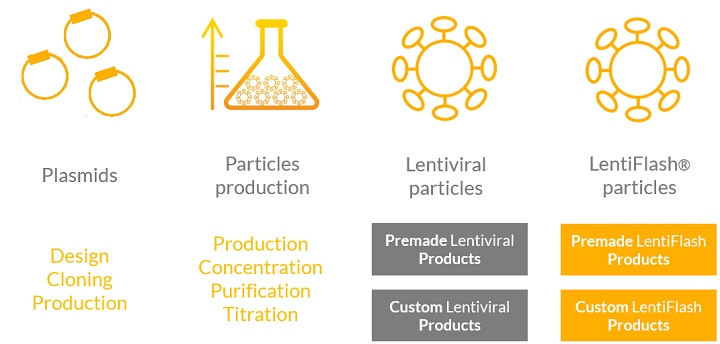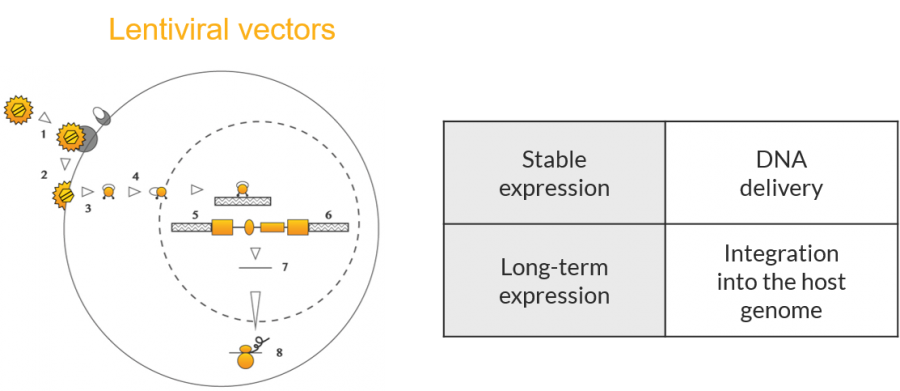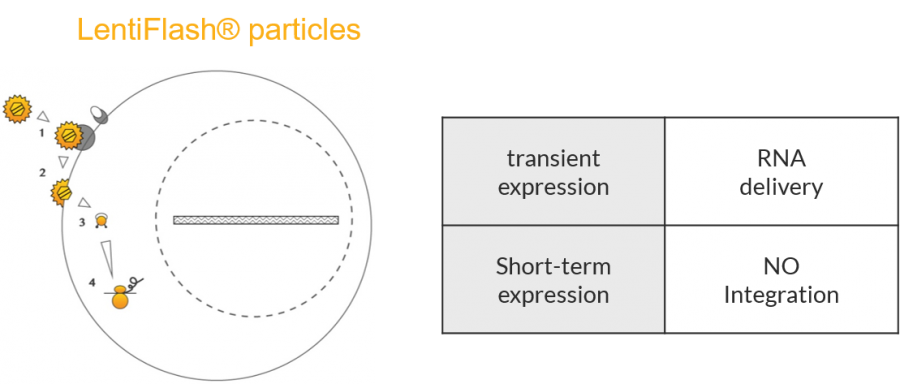With over 10 years of know-how in lentiviral vectors production and a robust bioproduction process, Vectalys has produced more than 6000 lentiviral vector batches for scientists all over the world. The purity and the concentration of our products make them ideal for hard-to-transfect cells like primary cells, stem cells and in vivo tissues.
![]() Discover all cells transduced with 100% efficiency using Vectalys' lentiviral vectors.
Discover all cells transduced with 100% efficiency using Vectalys' lentiviral vectors.
Our know-how
Depending on your application, Vectalys provides integrative lentiviral particles or LentiFlash®, an innovative non-integrating lentiviral particle for transient RNA delivery.
Integrative lentiviral vectors
- To add and overexpress a gene of interest, to generate stable cell lines or for CAR-T cells experiments, you need a stable gene expression using integrative lentiviral particles.
Vectalys also provides large-scale productions of lentiviral vectors (from 5 to 25ml) with the same quality and purity as small scale batches.
Non-integrative LentiFlash® particles:
- To make gene editing, cell differentiation, cell reprogramming or DC-based immunotherapy experiments, you need a transient expression and a RNA delivery using LentiFlash®.
-
RNA delivery using LentiFlash for efficient gene editing experiments (CRISPR congress Berlin 2016)
Vectalys
Apply for download
-
Method of titration for lentiviral vectors
Vectalys
Apply for download
-
Determination of transducing units
Vectalys
Apply for download
-
Lentiviral vectors production
Vectalys
Apply for download
FAQs
Transfection reagents are commonly used to transiently transfer RNA in cells of interest. However, these reagents may impact the cell viability, lead to high cell toxicity and can modify the cell phenotype (when used on difficult to transfect cells). LentiFlash, an RNA delivery particle derived from lentiviral vectors, resolves these main drawbacks.
Gene editing using CRISPR-Cas9 system is widely used nowadays, but it has been shown that a stable expression of CRISPR-Cas9 into cells of interest may lead to off-target activity which results in unexpected genome modifications. For this reason, we advise scientists to use LentiFlash for gene editing experiments (for transient RNA delivery).


